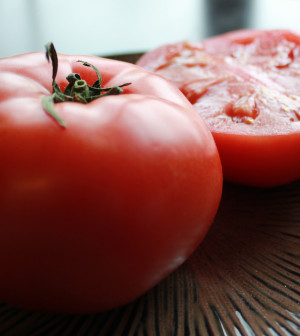Don't Miss
- Could Your Grocery Store Meat Be Causing Recurring UTIs?
- Are You Making This Expensive Thermostat Error This Winter?
- Recognizing the Signs of Hypothyroidism
- 10 Strategies to Overcome Insomnia
- Could Artificial Sweeteners Be Aging the Brain Faster?
- Techniques for Soothing Your Nervous System
- Does the Water in Your House Smell Funny? Here’s Why
- Can a Daily Dose of Apple Cider Vinegar Actually Aid Weight Loss?
- 6 Health Beverages That Can Actually Spike Your Blood Sugar
- Treatment Options for Social Anxiety Disorder
Health Tip: Eat Your Antioxidants
By LadyLively on February 14, 2017

Antioxidants, found in many healthier foods, protect your cells from damage.
The American Academy of Family Physicians suggests eating these antioxidant-rich foods:
- Eggs, milk, butter and liver, which are sources of vitamin A.
- Colorful fruits and vegetables, which contain vitamin C. Good sources include citrus fruits, strawberries, papaya, broccoli, cauliflower, kale and Brussels sprouts.
- Nuts (especially almonds and pecans), seeds (especially sunflower), nut oils, kale and spinach, which are good sources of vitamin E.
- Peas, carrots, apricots, peaches, sweet potatoes, beet greens and kale, which are sources of beta-carotene.
- Leafy green vegetables, such as spinach and kale, as well as papaya, corn, peas and oranges, which are good sources of lutein.
- Pink and red fruits and veggies, such as watermelon, tomatoes, pink grapefruit and apricots, which contain plenty of lycopene.
- Fortified cereals, bread, pasta, legumes, meat, fish, poultry, eggs and cheese, which are good sources of selenium.
Source: HealthDay
Copyright © 2026 HealthDay. All rights reserved.










